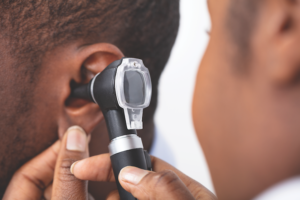With competencybased training, residents remain in training until they can demonstrate knowledge and skills for their specialty and are able to apply the knowledge and skills independently and competently to individual patients. —Sonya Malekzadeh, MD
Explore This Issue
December 2022
While case numbers have been a convenient way to measure exposure and function as a surrogate for trainee competency, real-time, case-by-case assessment of competency would be a more representative evaluation, said Dr. Smith. He added that simulation-based learning is an important way to teach and evaluate competency; while it’s present in many programs, it isn’t standardized across all programs. “Faculty evaluations are also competency based, as the faculty are assessing the trainees in situ and evaluating their ability to perform given tasks,” he said.
“The main goal now, from my perspective, is to remove the subjective component of assessment as much as possible and have a clear, transparent, and reproducible way to assess and document competency, which eliminates potential bias,” Dr. Smith said.
Steps to Standardize
Michael J. Brenner, MD, associate professor in the department of otolaryngology– head and neck surgery at the University of Michigan Medical School in Ann Arbor, noted that one potential source of confusion relating to EPAs involves how they are sometimes conflated with competencies and skills. Citing insights from a 2022 article published in Advances in Health Sciences Education (Adv in Health Sci Educ. 2022;27:491– 499), he explained that a person’s ability to perform a task or procedure is a skill, but the EPA is the activity itself.
“Entrustment thus lies at the intersection of a learner’s readiness to perform a task and how that task is executed,” Dr. Brenner said. This means that EPAs aren’t attributes of individuals but of the clinical work that’s being performed. “The implementation of EPAs can be undermined by policies requiring that specific roles be performed by an attending physician, as this can reduce autonomy and entrustment that is accorded a physician in training. The goal is that entrustment decisions are made to support progression through stages,” Dr. Brenner explained.
Some professional publishers are trying to break into the competency-based training business, such as Decker publishing, Memphis, Tenn., which offers an e-learning portal for many specialties, including otolaryngology. Dr. Malekzadeh believes, however, that EPA/CBME content should be developed and implemented by a core group of organizations and societies whose mission centers on residency education and assessment, with input from ACGME, the American Board of Otolaryngology–Head and Neck Surgery, and the American Academy of Otolaryngology–Head and Neck Surgery.
